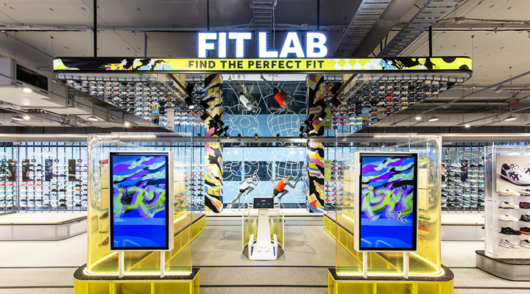 Coles will embark on a new strategic direction as it prepares to spin off from its parent Wesfarmers into a separate ASX-listed entity that will see it double-down on emerging digital opportunities and fresh food.
Coles will embark on a new strategic direction as it prepares to spin off from its parent Wesfarmers into a separate ASX-listed entity that will see it double-down on emerging digital opportunities and fresh food.
In a strategy day briefing on Thursday, outgoing Coles managing director John Durkan said the supermarket giant had developed a “new, differentiated strategy which will make life easier for customers.”
Under the new plan Coles will double down on growing its fresh department and invest in driving innovation in its private label products.
Durkan and new CFO Leah Weckert also told a forum of shareholders and analysts that the supermarket would spend 20 per cent more in capital expenditure next year than it spent in the last two years.
“[Cap-X] will likely step up on last year and probably back to some of the levels we were seeing spend in the early parts of the turnaround after Wesfarmers acquired Coles,” Weckert said.
With a chunk of that spending slated for renewals, Durkan said the next evolution for Coles would look to corner demand for health and convenience.
“The next evolution of renewals are primarily focused on range innovation in our fresh department, particularly with respect to food on the go and convenience products,” Durkan said.
“[We’re] tailoring stores to the local demographic and incorporating our click and collect service.”
Read more from Wesfarmers’ 2018 strategy day:
- Target to close 20 per cent of selling space, target H&M, Zara.
- ‘We don’t rely on M&A’: Wesfarmers plays down acquisition talk.
- Kmart looks abroad to satiate growth aspirations.
- Bunnings charts e-commerce expansion.
Coles will invest in a range of different supermarket formats in the coming years to address growing demand for flexible grocery shopping.
Online-only stores will be opened to facilitate fulfilment, while a raft of hybrid stores that combine a mini-DC with an existing supermarket will also be rolled out.
Home delivery, click-and-colllect concierges, service desks and lockers will round out its omnichannel focus.
The so-called “anytime, anywhere shopping” will see Coles increase its available delivery slots, begin offering one-hour home delivery and increase its food-to-go fresh offer in the next twelve months.
It comes as rival Woolworths also steps up its investment in its online offer, having rolled out in-store pick-up to all stores already.
Coles is working to catch-up to its rival, which has taken the momentum in Australia’s competitive $108 billion grocery sector over the last 18 months.
Durkan re-affirmed previous guidance that Coles would return to profit growth in 2H18 on Thursday, despite concerns from analysts that like-for-like growth is still sluggish.
Analysts have expressed concern that Coles has taken its foot off the accelerator in recent months in the lead off to its spin-off and has prioritised meeting profit hurdles over driving the top line.
Durkan contested that assessment, saying there was no lack of investment in the second half and that Coles was “ploughing in the capital”, citing 62 supermarkets openings slated for FY18.
“We’re focused on doing the right things for our customers and our like-for-like sales are building,” Durkan said, without committing to a LFL increase in the fourth quarter.
Coles third quarter food comps increased 0.9 per cent, a three-fold increase in its first quarter performance.
Coles’ is hoping ongoing investment in its private label program will help ease some pressure on margins in the coming years and help it deliver profitable growth.
On Thursday Durkan said Coles would target 40 per cent penetration in private label by 2023 to become an “own brand powerhouse”.
The shift will see more brands across more categories shift to private label, helping to plug gaps on shelves where no clear value option is presented.
Fresh is expected to be the ongoing focus for private label investment, but other cold grocery categories will also be targets as Coles improves the quality and breadth of the offer.
This will coincide with a continuation in Coles’ move towards every-day-low-pricing (EDLP), with 4,259 items on the Coles EDLP program so far and growing.
Meanwhile, the business will be making a concerted effort to reduce costs and plans to have rolled out its stock-less stockroom program, which ensures product is out on the floor and not in the back of the store, to all stores by the end of June.
Durkan will leave Coles later this year and will be replaced by retail veteran Steven Cain.





